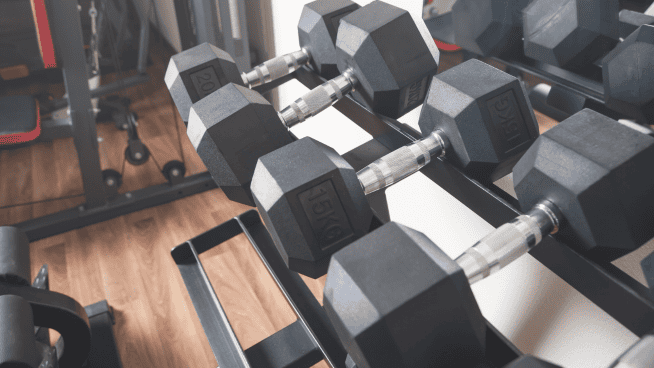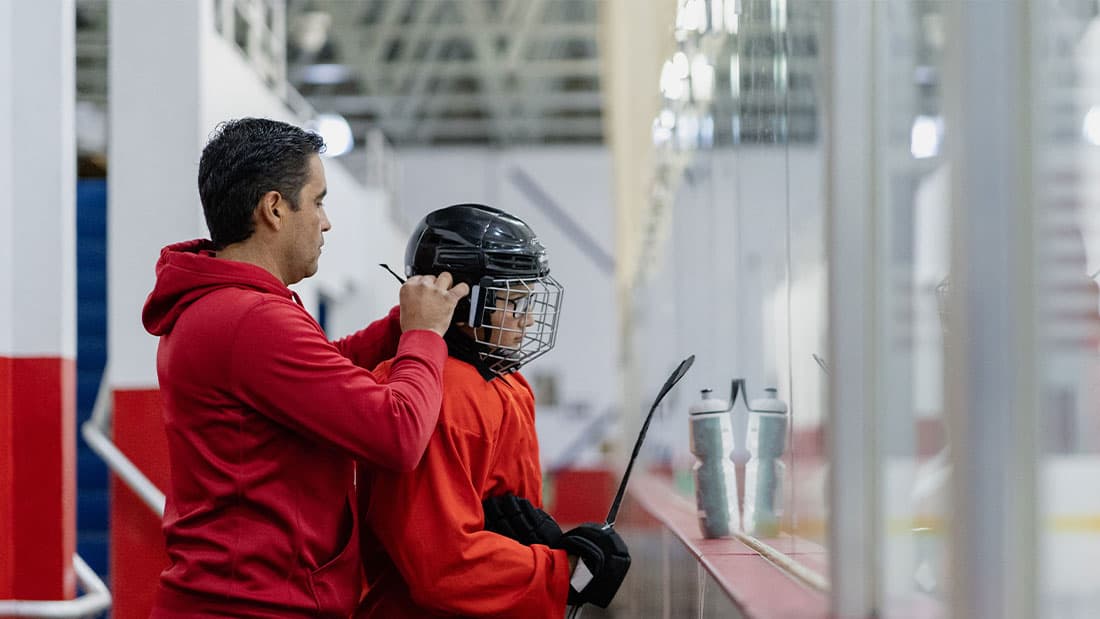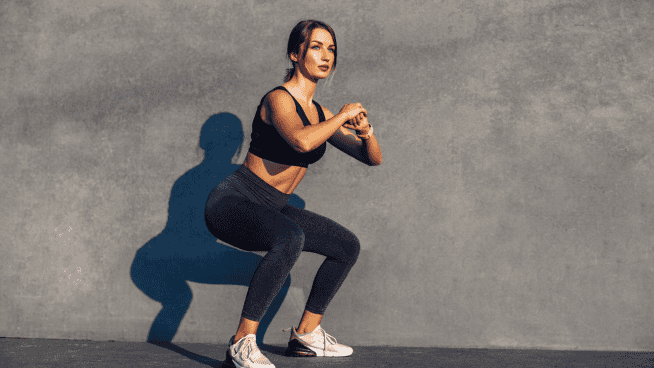Answering Common Questions From Female Athletes
Here are answers to some common nutrition questions asked by female athletes.
What are my greatest nutritional deficiency risks?
Iron deficiency is the most common nutritional deficiency in the U.S. Iron is important because it helps form hemoglobin, which transports oxygen in the blood. Females are at greater risk for deficiency due to added iron loss during menstruation. Red meat and fish are great sources of iron.
Iodine, which is lost through sweat, is another important mineral athletes need to monitor. Women, in particular, need to keep track of their iodine intake, because iodine encourages the body to maintain a healthy estrogen balance.
Calcium deficiency is also common among female athletes. Calcium helps with bone formation and muscle growth. Dairy products, along with leafy greens, sardines, nuts and seeds, are good sources of calcium.
What is the female triad?
A common concern for female athletes is what is known as the female triad, a syndrome of three related conditions: eating disorders, amenorrhea (loss of menstruation) and bone loss. The main cause is low calorie consumption, either from a desire to lose weight or simply because the athlete is unaware of how many calories she needs to support her activity. A busy schedule of classes, work, traveling and practice can interfere with getting enough calories. Female athletes need to work with a dietitian and find support from family, friends, teammates and coaches to promote positive body image and learn proper nutrition.
How do I put on muscle naturally?
Don’t fill your body with supplements and pills. Build muscle naturally with the right balance of carbohydrates and protein before and after exercise.
What is the best kind of protein powder?
You can get all the protein you need from real food; however, protein powder can be a healthy alternative for a quick boost of protein. Stir the powder into smoothies or other foods like oatmeal or yogurt. Whey protein is good to eat immediately after a workout to help rebuild muscles. This is the same protein found in dairy products, so those who are sensitive to milk may have a hard time digesting it. Casein is a long-acting protein that digests slowly. Take it before you go to bed to prevent muscle breakdown throughout the night.
If I am trying to lose weight, should I cut out carbohydrates and fat?
Meet with a registered dietitian to determine your recommended calorie intake. If you don’t get enough calories, you are at risk for symptoms of the female triad and you can slow down your metabolism. Under no circumstances should you eliminate entire groups of macronutrients. You need complex carbohydrates to produce glucose to fuel your body. If you are getting enough carbohydrates to give your body energy, take in protein for muscle formation. Fat is vital for supporting organs and tissues, absorbing fat-soluble vitamins and fostering strong hair and nails. Fat helps you feel full and provides you with energy for your sport.
Read more:
RECOMMENDED FOR YOU
MOST POPULAR
Answering Common Questions From Female Athletes
Here are answers to some common nutrition questions asked by female athletes.
What are my greatest nutritional deficiency risks?
Iron deficiency is the most common nutritional deficiency in the U.S. Iron is important because it helps form hemoglobin, which transports oxygen in the blood. Females are at greater risk for deficiency due to added iron loss during menstruation. Red meat and fish are great sources of iron.
Iodine, which is lost through sweat, is another important mineral athletes need to monitor. Women, in particular, need to keep track of their iodine intake, because iodine encourages the body to maintain a healthy estrogen balance.
Calcium deficiency is also common among female athletes. Calcium helps with bone formation and muscle growth. Dairy products, along with leafy greens, sardines, nuts and seeds, are good sources of calcium.
What is the female triad?
A common concern for female athletes is what is known as the female triad, a syndrome of three related conditions: eating disorders, amenorrhea (loss of menstruation) and bone loss. The main cause is low calorie consumption, either from a desire to lose weight or simply because the athlete is unaware of how many calories she needs to support her activity. A busy schedule of classes, work, traveling and practice can interfere with getting enough calories. Female athletes need to work with a dietitian and find support from family, friends, teammates and coaches to promote positive body image and learn proper nutrition.
How do I put on muscle naturally?
Don’t fill your body with supplements and pills. Build muscle naturally with the right balance of carbohydrates and protein before and after exercise.
What is the best kind of protein powder?
You can get all the protein you need from real food; however, protein powder can be a healthy alternative for a quick boost of protein. Stir the powder into smoothies or other foods like oatmeal or yogurt. Whey protein is good to eat immediately after a workout to help rebuild muscles. This is the same protein found in dairy products, so those who are sensitive to milk may have a hard time digesting it. Casein is a long-acting protein that digests slowly. Take it before you go to bed to prevent muscle breakdown throughout the night.
If I am trying to lose weight, should I cut out carbohydrates and fat?
Meet with a registered dietitian to determine your recommended calorie intake. If you don’t get enough calories, you are at risk for symptoms of the female triad and you can slow down your metabolism. Under no circumstances should you eliminate entire groups of macronutrients. You need complex carbohydrates to produce glucose to fuel your body. If you are getting enough carbohydrates to give your body energy, take in protein for muscle formation. Fat is vital for supporting organs and tissues, absorbing fat-soluble vitamins and fostering strong hair and nails. Fat helps you feel full and provides you with energy for your sport.
Read more:











